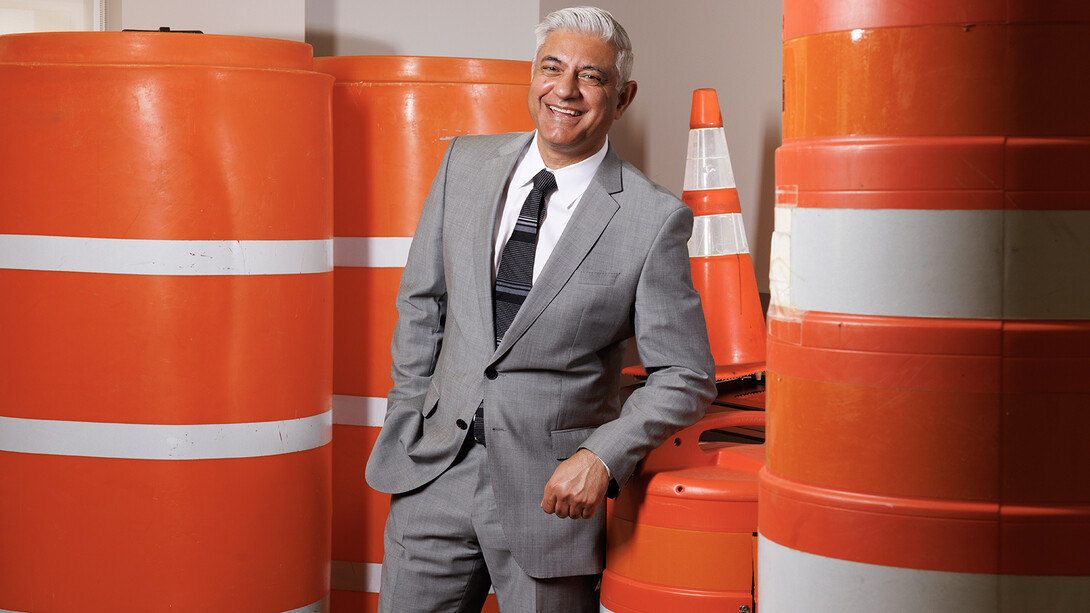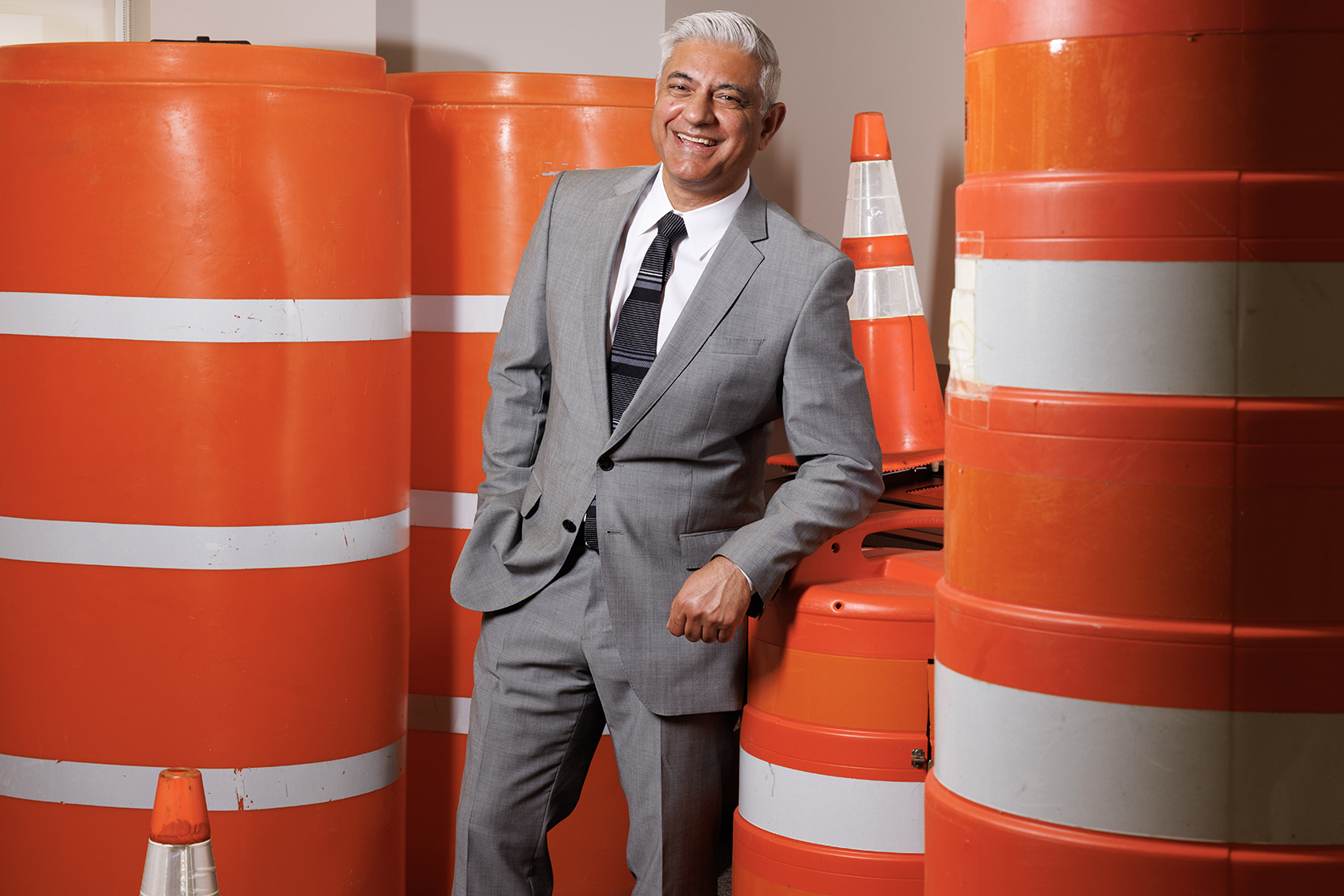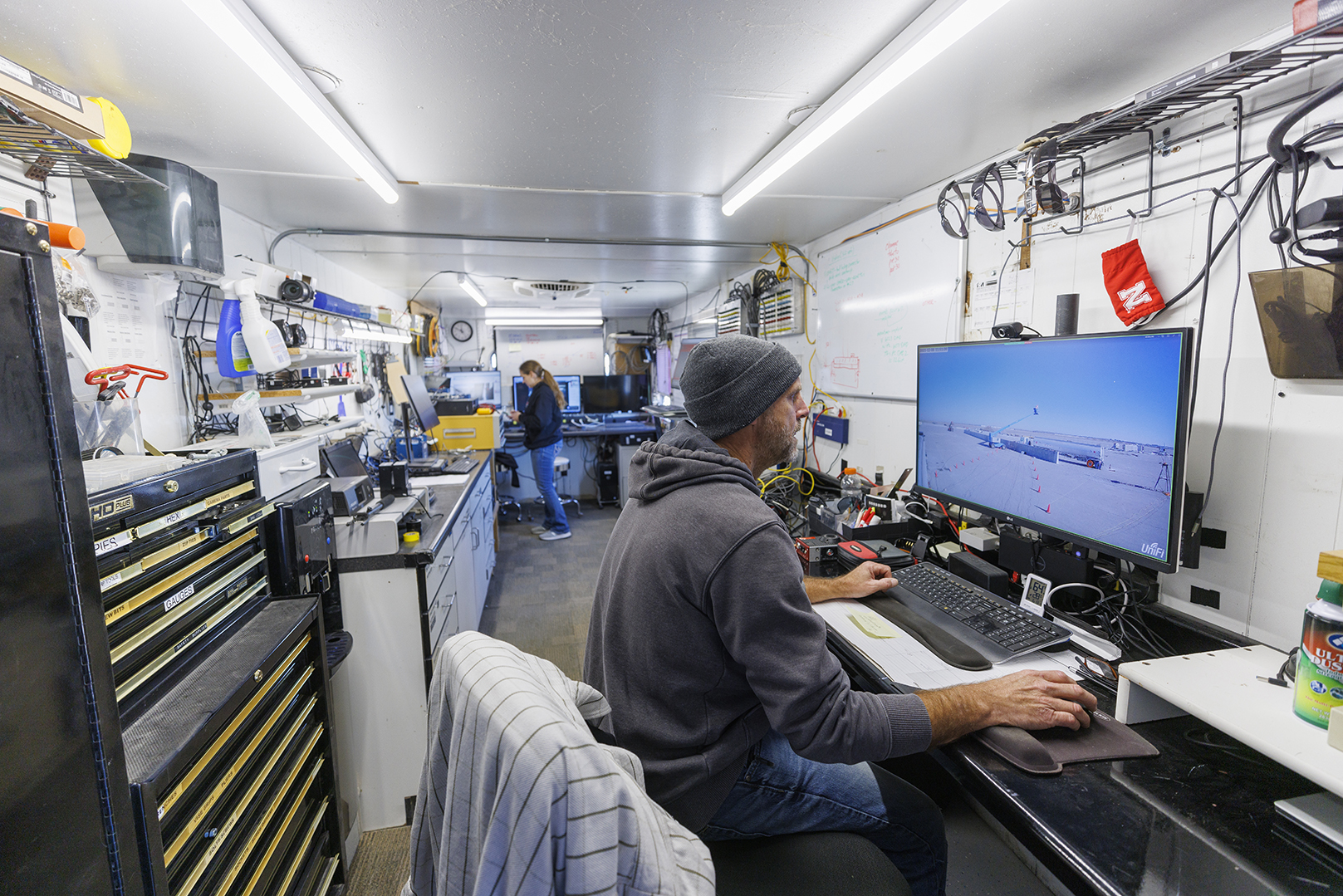
The University of Nebraska–Lincoln’s Mid-America Transportation Center has won a five-year, $15 million grant to remain the transportation research and workforce development hub for the U.S. Department of Transportation Region 7, comprised of Nebraska, Iowa, Missouri and Kansas.
This competitive grant is administered by the U.S. Department of Transportation through its University Transportation Centers program, which advances transportation research and technology, and develops the next generation of transportation professionals. The congressionally mandated program has been in place since 1987; the Mid-America Transportation Center first won the competition in 1995 and again in 2006, 2011 and 2016.
The center will receive $3 million per year for the next five years to improve transportation safety and equity. Other partner institutions are Nebraska Indian Community College, Missouri University of Science and Technology, the University of Iowa, University of Kansas and University of Missouri-St. Louis.
Aemal Khattak, the center’s director and professor of civil and environmental engineering, said the grant title reflects not only a focus on transportation safety issues, but on equity in transportation safety.
“The Mid-America Transportation Center for Transportation Safety and Equity shows our emphasis on equity-related safety issues,” Khattak said. “It reflects our recognition that different population groups may be impacted in various ways by transportation safety improvements. We are going to focus on equity issues in transportation safety, but also look at issues that affect Region 7 in unique ways, such as climate change and supply chain vulnerability.”
The grant will allow the center to expand its outreach and education programs, including a new safe driver academy in conjunction with Nebraska Indian Community College. Providing free training to the college’s students for the operation of both personal and commercial vehicles, Khattak said, will improve safety on the roadways and provide employment opportunities to the trainees.
“NICC is located in one of the most economically depressed areas of Nebraska, so job creation is important,” Khattak said. “This academy will prepare the next generation of commercial truck drivers and help fill the needs of Nebraska companies looking for drivers.”
Other Mid-America Transportation Center programs, some of which have been in place for more than a decade, include:
Sovereign Native Youth STEM Leadership Academy, a summer program that provides students with an extended learning opportunity in STEM subjects and helps them explore education and career options after high school. The curriculum is developed by Native faculty, students and leaders from across the country. Students from Federal Region 7 high schools are eligible to participate in the academy regardless of race, ethnicity, sex, tribal affiliation or other protected status.
MATC Scholars Program, which brings together diverse faculty and students from Historically Black Colleges and Universities, Minority-Serving Institutions and Hispanic-Serving Institutions to encourage the students to pursue college degrees and teach them necessary skills to succeed in STEM fields. One program is for undergraduate students from these institutions interested in pursuing graduate degrees. The second program encourages students enrolled at Nebraska Indian Community College or Little Priest Community College to pursue a STEM degree. Students are eligible to participate in either program without regard to race, ethnicity, sex, tribal affiliation or other protected status.
Roads, Rails and Race Cars after-school program, which since 2010 has engaged youth in 17 schools in seven cities across three states — Nebraska, Iowa and Wisconsin — and expanded their STEM learning opportunities outside the regular classroom. Each participating school offers the program for one hour a week. In 2017, MATC-TSE began a Roads, Rails and Race Cars partnership with tribal schools in three Nebraska communities — Macy, Winnebago and Santee.
Additionally, Khattak said, the grant will help support the MATC Intern Program, which includes other Region 7 members. At Nebraska, employers in Lincoln and Omaha provide experiences in transportation to Husker undergraduate students, many of whom are in the College of Engineering.
“I feel this is a major win for UNL, the College of Engineering and MATC because it allows us to continue these programs, none of which receive state funding,” Khattak said. “All of these activities improve the educational opportunities of young students and, ultimately, also address the workforce needs of Nebraska and the nation in transportation and STEM fields.”










